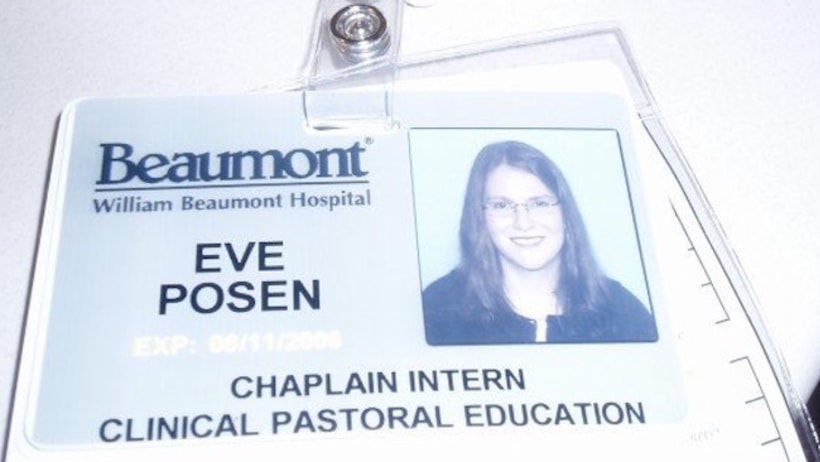During rabbinical school I spent one summer doing a unit of clinical pastoral education at a hospital in Michigan. My reasoning for spending that time in a hospital setting was twofold. First, I needed to get over some of my fear of the hospital environment and learn how to bring the most comfort to the most vulnerable. Second, I have long had a fascination with medicine, and this intensive program put me on overnight on-calls, trauma teams, and in the ICU standing right with the medical professionals. This was a lifechanging experience for me on so many levels, but most notably with my belief in God.

I was honored to be invited to sit in on an autopsy as the team worked to identify the cause of death. I stood in the room with my colleague and watched as the professionals went to work. To my amazement, their tools included a saw. Our bones are so hard and strong, they need the force of a heavy saw to cut open, and yet this woman died from bleeding caused by the tiniest pinhole tear. In that instant I became truly aware of the complexities of the human body, the intricacies with which we are created. In that moment I knew God existed. In a sense, for me this was the beginning.
This week we read parshat Bereshit, the first portion of the Torah. We begin again with our familiar story and move quickly from the days of creation through the narrative of Adam and Eve in the beautiful Garden of Eden to the first time someone challenged God. From there we experience the narrative of Cain and Abel and the first explosive sibling rivalry. The entire section of texts ends by careening us forward in time to the line of Noah.
But we begin with the beginning. “When God began to create heaven and earth, the earth being unformed and void with darkness over the surface of the deep…” The Torah begins with this sentence, acknowledging the beginning of all beginnings. Rabbi Akiva, a Talmudic sage, taught, “Just as the existence of a house testifies to the builder and the existence of a garment testifies to the weaver, so the existence of the world testifies to God who fashioned it.”
On the surface, Rabbi Akiva’s proof of God rests in the mere existence of the world, but what he is implying is that the divinity of the architecture is in the complexity of it. The beginning of my belief in God was that moment in the hospital. I believe in God because I saw firsthand what unique systems and works of art our bodies are, and they are beyond anything my mind can consider creating. In that small, sterile basement room, I met God, and it was a moment that opened my eyes to a miracle which I cannot understand outside the realm of faith.
It’s not my job to persuade you to believe in God. As far as explanations go, you might take an approach that is purely divine, one that is purely scientific, or one that falls somewhere in between. Nevertheless, starting our year and our Torah cycle anew does compel us to see the world in a new light. However the story of creation resonates with you, in this new light may we find moments of belief, moments of clarity, and perhaps moments that acknowledge the presence of God in some way.
-Rabbi Eve Posen
Source: Why I Believe in God – Parshat Bereshit 5776 – Rabbi Eve Posen



